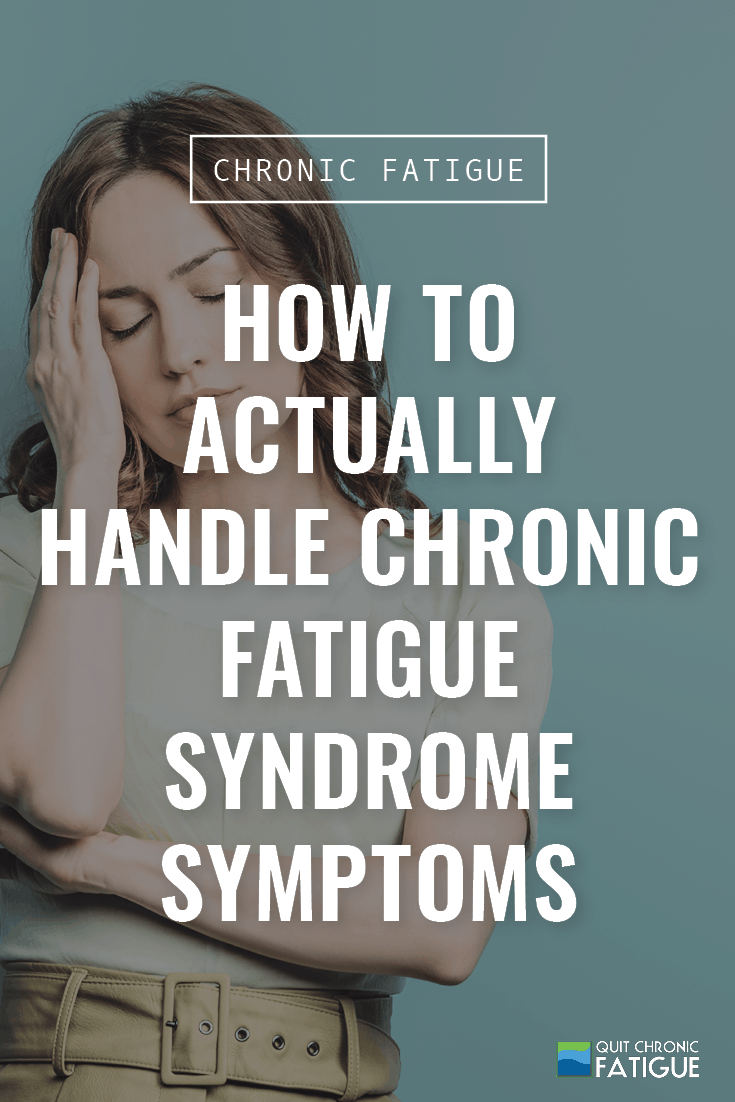Some scientists are becoming increasingly concerned that people who’ve had COVID 19 may also develop long term problems that resemble Chronic fatigue syndrome symptoms.
Feeling exhausted isn’t unusual after having a viral infection, but usually, it passes. But there is evidence that suggests COVID 19 could trigger chronic fatigue. There are more studies taking place to find out more about how COVID 19 and other viruses could’ve triggered CFS.
Whether you have CFS for the last few years, or you feel it’s been triggered because you had COVID 19, here are some steps you can take to start your journey to feeling better.
In this blog post, you will learn:
- What Chronic Fatigue Syndrome/ME is
- Chronic Fatigue Syndrome Symptoms
- How to Cope With Your Symptoms

What is Chronic Fatigue Syndrome?
This is a condition that can’t be explained by any medical condition. It’s a condition of extreme fatigue that can get worse with physical or mental activity. It also won’t improve no matter how much rest you get.
Chronic fatigue syndrome is also known as myalgic encephalomyelitis (ME). It is abbreviated to ME/CFS.
There are several theories as to the cause of chronic fatigue syndrome, but the cause is still unknown.
Unfortunately, there is no single test that can diagnose you with having chronic fatigue syndrome. Usually, you would have to take several tests to rule out anything that has similar symptoms.
The treatment for this condition focuses on giving relief for the symptoms.
Related: 5 Strategies for Living with Chronic Fatigue Every Day
What are the Symptoms of CFS?
One of the symptoms for CFS is that you’re unable to do the activities you used to do before this illness. This happens along with extreme fatigue which lasts for 6 months or longer. This fatigue is much different than just feeling tired.
People who have CFS symptoms will sometimes get worse after physical or mental activity. This is referred to as a “crash” or “relapse”.
Some of the symptoms in a “crash” include:
- Difficulty thinking
- Problems sleeping
- Sore throat
- Feeling dizzy
- Severe tiredness
It may take weeks or longer to recover from a “crash”.
Sometimes people are completely house-bound or even bed-bound during these crashes. It’s hard to predict what causes these crashes or how long it will last.
People with CFS quite often have different types of pain that vary in strength. The common types of pain are:
- Muscle aches and pains
- Joint pain
- Headaches
Other symptoms of chronic fatigue syndrome are:
- Tender lymph nodes in the neck or armpits
- Digestive issues
- Night sweats
- Allergies
- Sensitive to foods, odors, chemicals, light or noise
- Irregular heartbeat
- Shortness of breath
How to Cope with Chronic Fatigue Syndrome Symptoms
Get A Good Night’s Sleep
Depending on how severe your symptoms are, you may not be getting good quality sleep at night. Without good sleep, CFS can worsen physically and mentally.
Try to do relaxing activities before bed.
- Read a book instead of watching Netflix.
- Take a relaxing bath with your favorite essential oils.
- Do some deep breathing exercises to calm your mind.
- Do some easy stretches with your breathing exercises.
- Write down what causes your anxiety.
- Journal every evening.
Manage Your Depression and Anxiety
A chronic illness like chronic fatigue syndrome can cause anxiety and depression.
People can get depressed because their lifestyle has changed dramatically. Things they used to enjoy are now too tiring and too hard to do anymore.
Sometimes their job may be compromised where they may lose their income because they can’t work for long periods of time.
This condition can put added stress on relationships too. After a long period of time, other people may not want to be as committed to your relationship. This can add to your depression.
Ask your doctor to help you with your depression and anxiety. They may be able to refer you to different groups where there are people who can support you and offer you lots of help. Or you may prefer to see a counselor.
A support group can offer tips on how to relax and cope better with this illness.
Some people may need medication to help with panic attacks or anxiety. Talk to your doctor to see what you need specifically for the stage you are at.
Experiment Persistently
You can experiment with different ways to help yourself get better. You may have to try different things for several months or a year before you see consistent results.
One thing you can do is experiment with different healthy ways of eating.
Research what other people have done and how it helped them with their chronic fatigue. And try some of the strategies they’ve done to get good results.
Some diets you could try are:
- Cutting out wheat, dairy, and sugar.
- Vegan
- Different types of cleanses throughout a year.
- Intermittent fasting.
- Raw food diets.
Consult your doctor if you are changing your diet. They can monitor you as you make any changes to make sure you’re staying healthy.
Take Charge
It’s best to talk to your healthcare provider about what you can do to get better.
But mostly you have to take charge of your own healing. You will have to do lots of research and ask lots of questions. You will have to track your symptoms daily. Your doctor may not provide the cure, but they can offer advice and help you find solutions.
Bring your questions and a list of symptoms to your doctor. Keep track of your diet, exercise or any activity that may cause a relapse, sleep patterns, and pain you may have. You should monitor your levels of fatigue on a daily basis too.
If you’re experimenting with different diets, be sure to keep a journal of how you feel every day after you eat and your overall well-being with a change in diet.
Dealing with chronic fatigue syndrome on your own can be hard. Talk to your friends and family and ask for their support and strength on your journey to get better. Many people can offer help with research or just being there for you.




